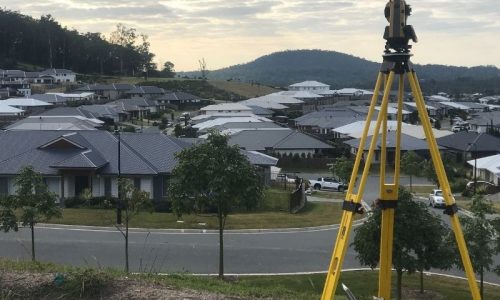When embarking on a construction project, whether it’s a residential home, commercial building, or public infrastructure, understanding the land is crucial. Contour and detail surveys are essential tools in the construction industry that provide detailed information about a site’s topography and features. But are these surveys required for all construction projects? In this blog, we’ll explore the importance of contour and detail surveys and whether they are necessary for every construction endeavor.
Understanding Contour and Detail Surveys
Contour Surveys
A contour survey is a type of land survey that maps the elevation and shape of the land. It provides critical information about the contours, slopes, and elevation changes of a site. These surveys are essential for understanding the topography, which influences drainage, foundation design, and overall site planning.
Detail Surveys
A detail survey, also known as a feature survey, captures all the visible features of a site, including buildings, trees, roads, and utilities. This type of survey provides comprehensive information about the physical features and structures on the land, ensuring that planners and designers have a clear understanding of the site’s existing conditions.
The Role of Surveys in Construction Projects
Planning and Design
Surveys are fundamental in the planning and design stages of construction projects. They provide accurate data that architects and engineers use to create designs that fit the site’s unique characteristics. Contour surveys help in determining the best location for structures, while detail surveys ensure that all existing features are accounted for in the design.
Regulatory Compliance
Local regulations and zoning laws often require detailed information about a construction site. Contour and detail surveys ensure that your project complies with these legal requirements. Submitting accurate survey data can help avoid delays and legal issues during the permitting process.
Risk Management
Identifying potential site issues early on is critical for risk management. Surveys reveal information about the land that might not be immediately visible, such as underground utilities or potential flood areas. By understanding these risks, construction teams can plan accordingly and mitigate potential problems before they arise.
Types of Construction Projects and Survey Requirements
Large-Scale Commercial Projects
Large-scale commercial projects, such as shopping centres and office buildings, almost always require both contour and detail surveys. The complexity and scale of these projects necessitate a thorough understanding of the site to ensure successful planning and execution.
Residential Construction
For residential construction, the need for surveys can vary. New home builds and major renovations typically require contour and detail surveys to ensure proper site planning and compliance with local regulations. However, minor modifications to existing homes might not need such detailed surveys, depending on the project’s scope and location.
Infrastructure and Public Works
Infrastructure projects, including roads, bridges, and public facilities, require precise surveys to ensure safety and functionality. Contour surveys help in designing structures that fit the land’s topography, while detail surveys ensure all existing features and utilities are considered in the project plan.
Benefits of Conducting Contour and Detail Surveys
Accurate Site Assessment
Conducting these surveys ensures a thorough understanding of the land, allowing for accurate site assessment. This information is crucial for making informed decisions during the planning and design stages.
Improved Project Planning and Execution
With accurate survey data, project planning becomes more efficient, and execution is smoother. Surveys help minimise delays and cost overruns by providing detailed information that guides the construction process.
Enhanced Safety
Identifying potential hazards and ensuring safe construction practices are paramount. Surveys reveal critical information about the site, such as unstable ground or hidden utilities, which can be addressed before construction begins.
Long-Term Value
Investing in contour and detail surveys provides long-term value for future development and maintenance. Accurate records of the site’s topography and features are invaluable for ongoing and future projects. For example, companies like CitiSurv Land Surveyors offer comprehensive contour and detail surveys in Sydney that can greatly benefit your construction project.
Consequences of Skipping Surveys
Potential Risks and Issues
Skipping these surveys can lead to significant risks and issues, such as structural problems, legal disputes, and increased costs. Without accurate data, construction projects are more likely to encounter unexpected problems that could have been avoided.
Case Studies or Examples
There are numerous real-life scenarios where the lack of surveys led to major problems. For example, a construction project that proceeded without a contour survey might face severe drainage issues, causing costly repairs and delays. Similarly, skipping a detail survey could result in damaging underground utilities, leading to expensive fixes and legal troubles.
Conclusion
Contour and detail surveys are not just an optional step in the construction process; they are essential for accurate planning, regulatory compliance, risk management, and overall project success. While not every project may legally require these surveys, the benefits they provide make them a wise investment for any significant construction endeavor.
Keep an eye for more news & updates on WebOfBuzz.Com!




